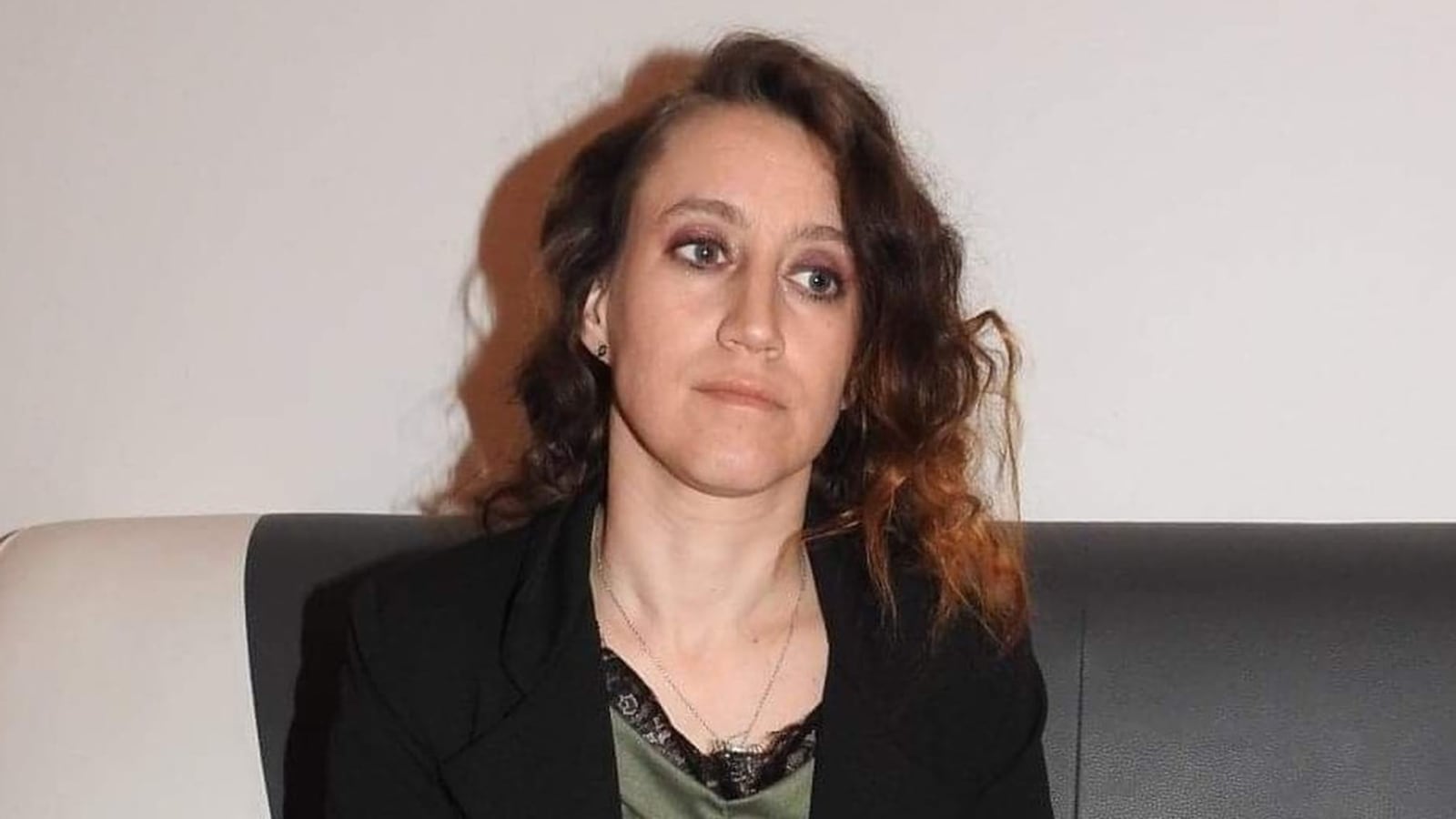ROME—Few would argue how Valérie Bacot rationalized pulling the trigger that sent a fatal bullet into the back of her stepfather-turned-husband Daniel Polette's neck on March 13, 2016. She had earlier unsuccessfully tried to poison him with a sleeping pill, and she said she knew he was grooming their 14-year-old daughter for serial rape. She was tired of years of abuse and being pimped out to strangers in the family minivan, so she did what she thought she had to do.
“I took the gun,” she said in an emotional interview with Le Parisien ahead of her June 21 murder trial that could send her to prison for life. “There was a loud noise, the flash, the smell. I got out of the car, opened the door, he fell. I thought only of saving myself because I was sure he was going to kill me.”
Bacot then told her oldest children—who she says were borne of rape—that she had killed the monster they called their father. They admitted they helped bury his body in a forest. All the while, she packed dirt on the hastily dug grave—she said she worried he would come back to life. “The only thing I thought about was putting dirt on it,” she said. “Because I was afraid he would come out and kill us.”
The 40-year-old and two of her children were arrested in October 2017 when Polette's body was found after the mother of her son’s girlfriend, who had been involved in the hasty burial, turned her in. Since that time, more than 400,000 people have signed a petition to ask Emmanuel Macron for a presidential pardon that could save Bacot, though opponents say presidents have no place in the court of law. Interest in her case has galvanized those fighting against domestic violence, not just in France, but across Europe where, on average, one woman is killed every three days by an angry partner. A television interview in France ahead of her trial garnered 4.5 million viewers, and her horrific memoir Tout le monde savait or Everyone Knew is a national bestseller in France.
Bacot’s lawyers told The Daily Beast that they are “withdrawing from the media” in the weeks leading up to the trial to focus on her defense, saying, “We will neither give interviews nor make any statements during the several weeks to come.”
The case harkens back to Jacqueline Sauvage, another French woman who fatally shot her husband after years of abuse against her and her children. Sauvage won a presidential pardon after being sentenced to 10 years in prison for murder. Bacot’s supporters believe her case merits the same consideration, though in both cases, the women were failed by a system that did not protect them from years of documented abuse. In Bacot’s case, her children went to police more than once to try to help their mother, but police turned them away because they were minors.
“Even though she committed murder by killing her torturer, and taking into account the 25 years of suffering she suffered and endured in general indifference, it is her freedom that we ask for,” a spokesperson for the support group sponsoring the petition says.
Polette, a truck driver, married Bacot’s mother in 1992, and started grooming her immediately, insisting he put body lotion on her prepubescent body and on watching her bathe, according to her memoir. She says he then began raping her when she turned 12, after her first period. Bacot reported the rape to authorities through a teacher at her school and Polette was sentenced to four years in prison for raping his stepdaughter. All the while, her mother made her visit the man who raped her in prison. When he got out, he moved back in with Bacot’s mother and the abuse started once more. “Every night after school he would say ‘you go upstairs’ to me,” she said in the interview. “I knew what that meant.”
When she became pregnant at 17 with the first of four children he would father with his stepdaughter, her mother sent her off to live with the ogre. “My mother helped me pack my boxes,” she said. “At first I thought my mother didn’t know, but over time I realized she did, but never did anything.”
Several years into the relationship, they married. Then things got worse. Bacot says Polette had always physically abused and emotionally tortured her, but then he started threatening to kill her and the children with a gun, at times pulling the trigger as he pointed what she did not know was an unloaded gun at her head. “You’re lucky, it’s not today,” he would say. “There is nothing in it, but next time I will not miss.”
Then when money got tight, Bacot says Polette started to pimp her out of the family Peugeot minivan, speaking to her in an earpiece and threatening her the whole time not to ask the men who paid for sex for help.
Even that, she says, she could have tolerated. But shortly before she killed him, she said he asked their 14-year-old daughter how she was sexually. She knew exactly what would happen next. At that point, she knew she had to stop him.
Bacot knows she could spend the rest of her life in prison, but says it is better than the rest of her life with him. “I deserve to go to jail, a very long time, that’s normal. But this trial is not only mine but that of ‘the other,’” she told Le Parisien, referring to Polette. “I hope that I can be stronger than him and for once in my life win against him.”
Bacot’s story mirrors that of countless women who are prisoners in violent relationships, having been groomed to believe they cannot leave. “I have lived my whole life believing that I deserved it,” Bacot writes in her book. “That it was because of me.”


